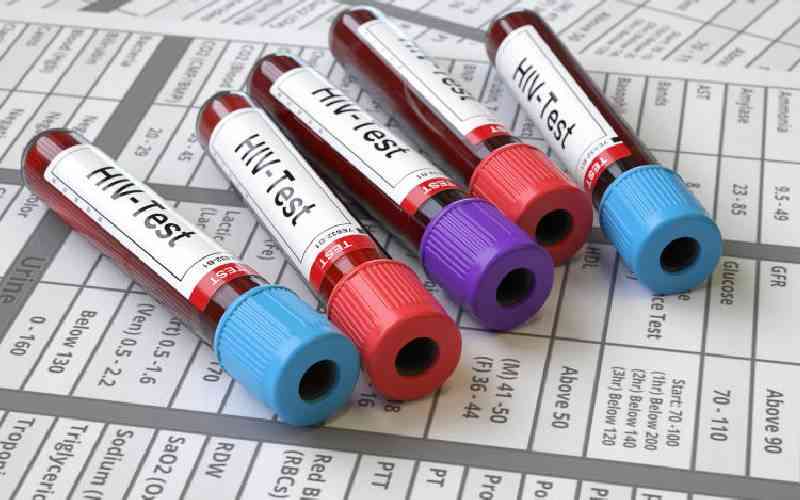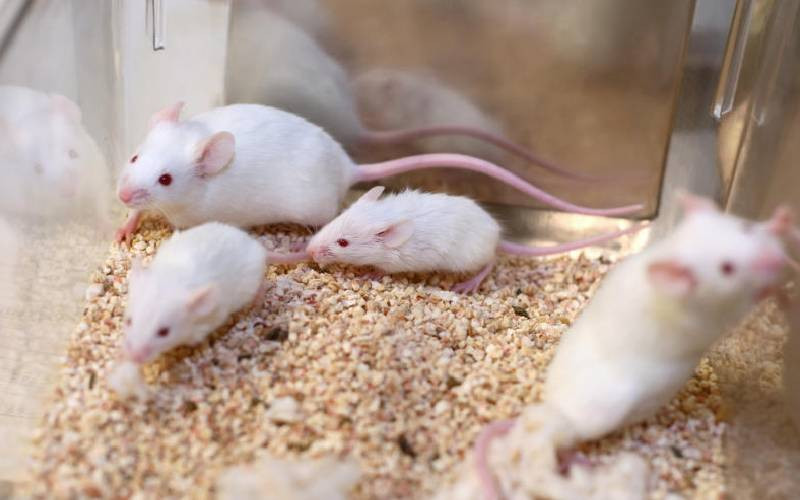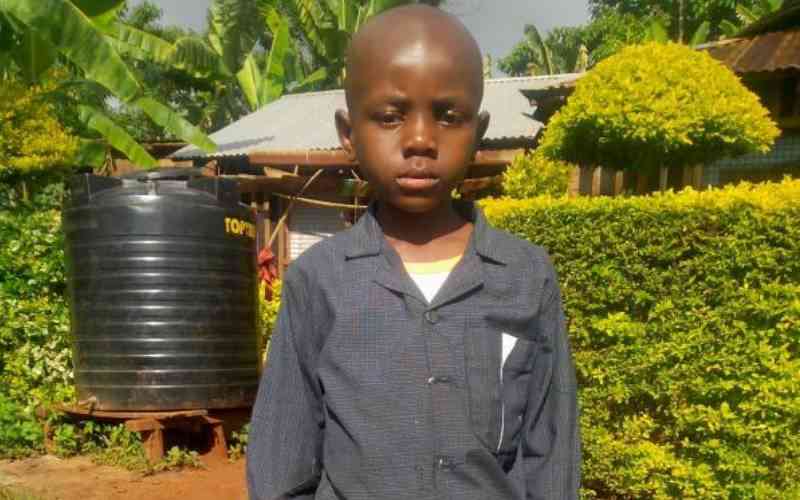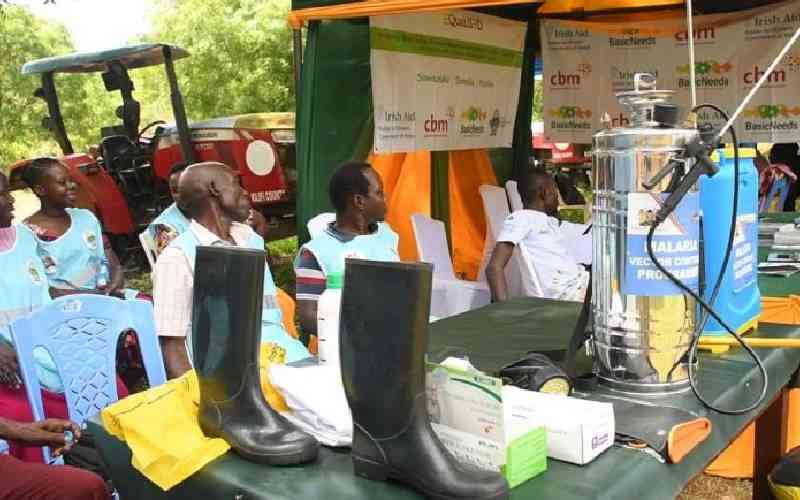
The idea of walking into a clinic for an HIV test feels unnecessary and intrusive to Dennis*.
The 31-year-old insists he is cautious-he uses condoms during sex and avoids partners he considers high risk. "Testing for HIV has never crossed my mind," he tells The Sunday Standard. "Yes I have multiple girlfriends, but I use protection whenever I'm intimate with them."
Dennis believes he is doing just enough to shield himself from the virus, even though he does not know his HIV status.
Though reluctant to undergo testing, he is well-informed about HIV transmission and treatment.
"I fathered a daughter who is HIV-negative. Maybe someday I'll gather the courage to test. For now, I'm just careful about who I sleep with. It would be traumatic to find out I'm positive," he says.
Noah Otieno, a second-year student at Rongo University, shares a similar attitude. Despite having multiple partners, he too avoids HIV testing. "I don't get tested, but I use condoms every time I have sex," he says. "But sometimes, when the urge is strong and I don't have a condom, I'll go ahead without one-if I trust my partner. I just pray I don't contract the virus. I want to leave university the same way I came in."
- Why 'disco matanga' is to blame for high HIV prevalence
- The side effects of HIV therapy
- How two-month HIV shots reduce pill burden
- Youth face high HIV risk as donor support drops
Keep Reading
Otieno, who hails from Migori, admits he has no concrete reason for avoiding HIV testing.
Sadly, their fears are not isolated. They mirror a widespread reluctance among men across the country-a demographic less likely to get tested, more likely to default on treatment, and dying from Aids-related complications at higher rates than women and girls.
This comes even as Kenya races to eliminate new HIV infections and Aids-related deaths by 2030. The latest data from the National Syndemic Diseases Control Council (NSDCC) shows that at least 1,378,457 Kenyans are living with HIV, with men accounting for just 35 per cent (487,710), compared to 890,747 women.
In 2023, Kenya recorded 20,480 Aids-related deaths, up slightly from 18,473 in 2022. Of these, 8,490 were men and 9,382 were women.
According to NSDCC Acting CEO Dr Douglas Bosire, engaging men and boys is essential if the country is to meet its HIV targets.
"As a country and as a globe, we've heavily invested in empowering girls and women to improve gender equality. But in the process, we've noticed men are being left behind," said Dr Bosire.
"In the past, we assumed men were strong and could take care of themselves. But the data tells a different story. We must dismantle that myth."
Testing uptake among men remains low. Of the 6.8 million people who got tested in 2023, only 1.8 million were men and boys.
"Only three out of every ten people who test for HIV are male. That means most men aren't in care or on treatment-because testing is the first step," he added.
Treatment access also reflects a gender divide: while 95 per cent of women living with HIV are on treatment, only 91 per cent of men are.
Men are also disproportionately affected by co-infections such as tuberculosis (TB). Of the 90,000 new TB cases recorded in the latest data, 67 per cent were men and boys aged between 22 and 40.
"About 29 per cent of people with TB are co-infected with HIV. Men affected by both TB and HIV are at high risk of suffering and dying if not reached in time," he warned.
Substance abuse, too, is higher among men than women-a contributing factor in new HIV infections, especially when drugs are injected using contaminated needles.
To address the growing crisis, the NSDCC, in partnership with local administrators, has launched a national programme to actively engage men and boys in HIV prevention and care.
The initiative will be unveiled during the Boys and Men Summit 2025, set to take place tomorrow at Tambach Teachers College in Elgeyo Marakwet County.
The summit aims to raise awareness about HIV, promote positive masculinity, challenge harmful gender norms, and encourage men and boys to become advocates for health in their communities. It will also tackle issues such as gender-based violence and teenage pregnancy.
At least 1,000 male champions are expected to attend, including people living with HIV, members of HIV networks, and representatives from non-governmental organisations.
The goal is to counter toxic masculinity that discourages men from seeking healthcare and encourages risky behaviours.
 The Standard Group Plc is a multi-media organization with investments in media
platforms spanning newspaper print
operations, television, radio broadcasting, digital and online services. The
Standard Group is recognized as a
leading multi-media house in Kenya with a key influence in matters of national
and international interest.
The Standard Group Plc is a multi-media organization with investments in media
platforms spanning newspaper print
operations, television, radio broadcasting, digital and online services. The
Standard Group is recognized as a
leading multi-media house in Kenya with a key influence in matters of national
and international interest.











